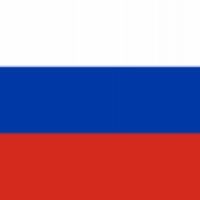Summary:
A Russian institute has developed an innovative technology for the production of micro-fertilizers to improve plant growth. The developed fertilizer is especially effective in restoring actively cultivated and/or depleted soils. It creates favorable conditions for the growth of the microbiota, which enters into symbiosis with plants. The institute is looking for foreign partners to conclude a commercial agreement with technical assistance.
Description:
The Russian Research University was founded in 1916 and is engaged in the development of innovative technologies for the production of micro-fertilizers to improve plant growth.
As time goes by, cultivated soils are depleted not only of mineral elements but also several microorganisms living in the soil. Therefore, the problem of maintaining soil microbiota is as important as maintaining the number of mineral elements in the soil. Current methods of maintaining microbiota include the use of phyto activators and activators of microbiota-containing bacteria. The disadvantage of this approach is that externally added bacteria do not settle down, and therefore it needs to be added every year. The developed matrix does not contain bacterial material; it promotes the growth of soil’s own microbiota, which persists for the following years.
Thus, the developed fertilizer is especially effective in revitalizing actively cultivated and depleted soils. For example, a lot of soils in the EU are being degraded by canola cultivation nowadays (particularly in Czech Republic, Austria, Germany), and, after 4 years of its cultivation, soils become almost completely depleted.
The developed micro fertilizer based on a multi-component polymer complex has an activating effect on the growth of soil microorganisms’ number, which positively affects the condition of agricultural lands in general. For example, fertilization leads to an increase in the number of Azotobacter bacteria in the root area of cultivated plants.
On the other hand, the problem of the lack of mineral elements is easily solved by the addition of mineral fertilizers. Part of the mineral fertilizers does not get absorbed by the plant since it gets washed out of the soil. The developed matrix allows using carried elements more evenly and rationally due to gradual decomposition of the matrix and release of the carried element. The matrix sticks to the root and does not get washed away.
The technology of production has an opportunity of adding into the matrix different kinds of elements, including innovative ones. For example, there is the developed variant of fertilizer with colloidal selenium stabilized in a polymer matrix.
The technology has variations in the method of manufacturing, depending on the intended carried elements and the targeted release time of the elements. Also, fertilizer can be presented both in liquid and in dry (granular) form. The liquid form is used for the pre-sowing treatment of seeds and seedlings, as well as for processing on green mass. The granular form is used similarly to mineral fertilizers.
The Russian institute is looking for foreign partners from the agricultural field to conclude a commercial agreement with technical assistance. The institute is ready to sell the technology’s rights and provide technical help in establishing technology and adjusting it for requested carried elements.
Type (e.g. company, R&D institution…), field of industry and Role of Partner Sought:
Type: SMEs, large companies, fertilizer developers, companies from the agricultural field
Role: in accordance with the commercial agreement with technical assistance, the role of a potential partner is to help the Russian institute to develop and improve the technology. Also, a potential partner will have to provide assistance in launching this technology on the foreign market.
Stage of Development:
Already on the market
IPR Status:
Secret Know-how
External code:
TORU20210804002








